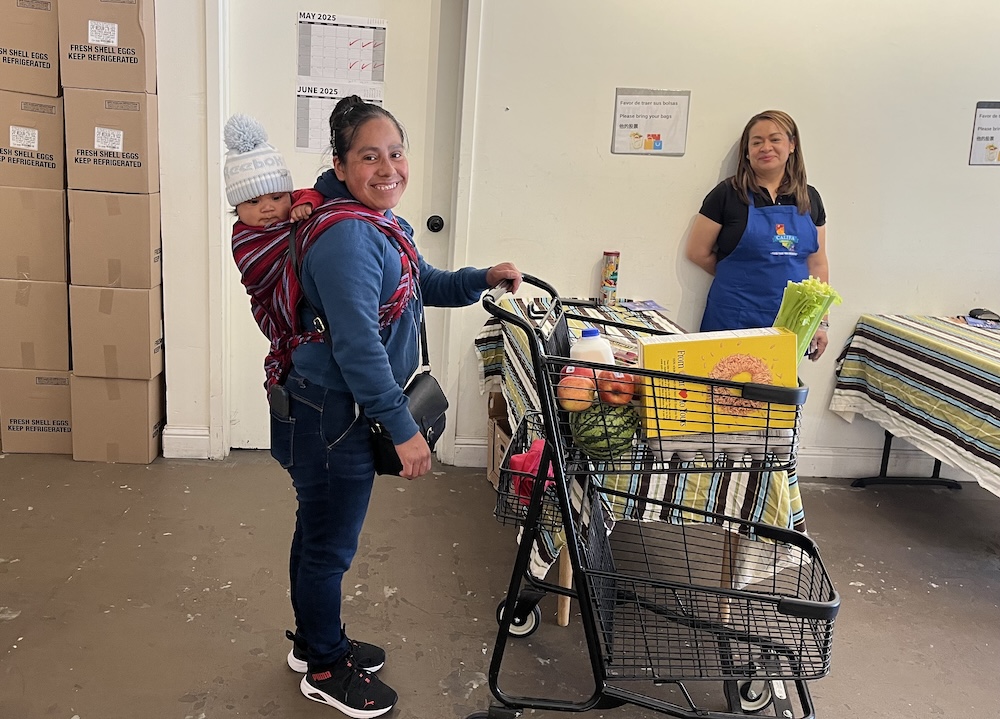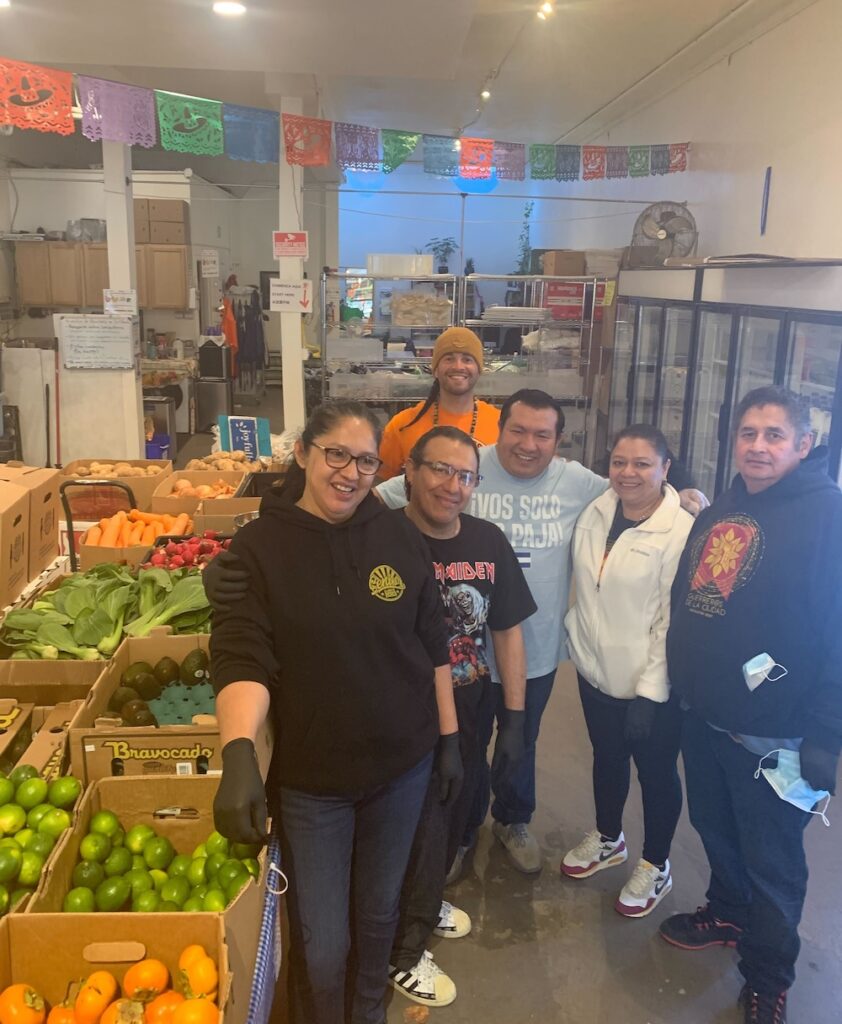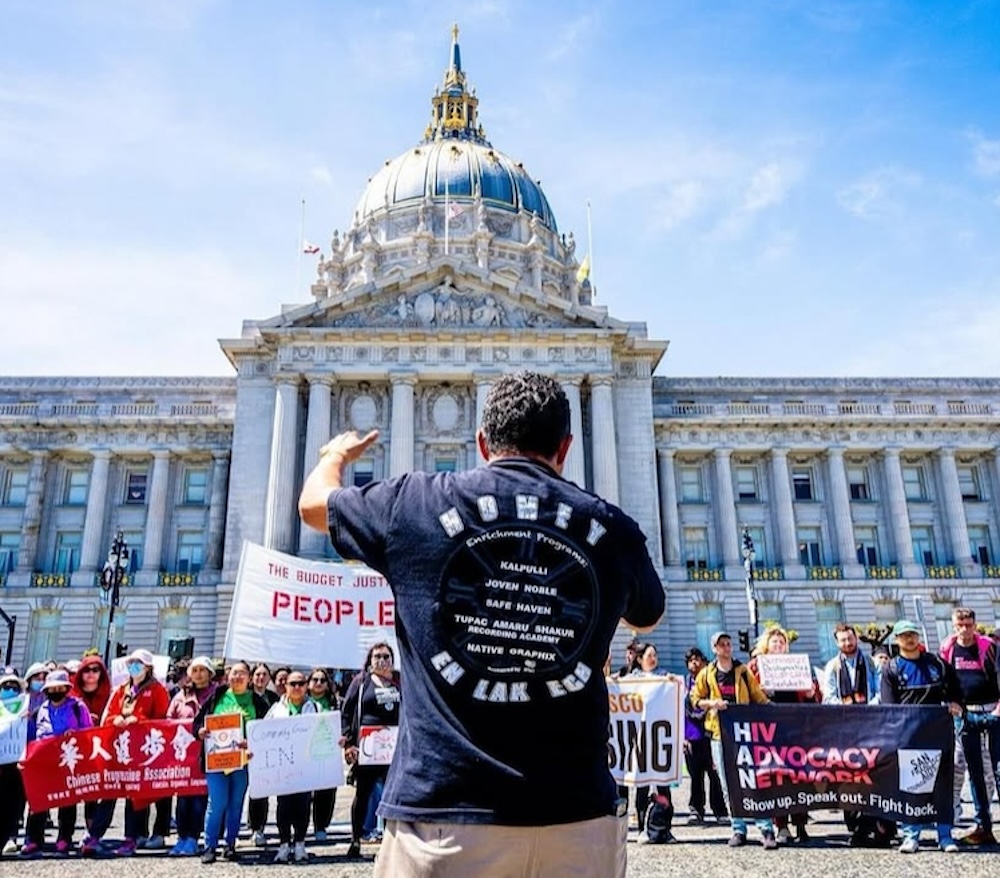It is a disastrous moment to cut low-income Mission District families off from housing security—but that is precisely what Mayor Daniel Lurie’s new city budget seems to do.
“We’ve already heard people not wanting to go to work, or not wanting to let their kids go to school because they’re afraid,” says Roxana Morales, program manager of Homies Organizing the Mission to Empower Youth‘s housing assistance program, when asked in a 48hills phone interview how recent escalation of ICE raids could impact the families she works with.

The brutality of federal immigration policy is only compounded by the fact that HOMEY is being cut off from the city’s Emergency Rental Assistance Program, its sole source of funding.
It’s not the only housing assistance organization facing cuts in the new budget. Chinatown Community Development Center, Housing Rights Committee of San Francisco, Mission Action, SOMCAN, Chinese Progressive Association, San Francisco Anti-Displacement Coalition, SRO Collaboratives, and Tenderloin Housing Clinic are also set to lose funding.
“It’s going to make it harder for people to be financially stable and keep their housing, if they’re afraid that going to work or being out on the street is going to get them deported,” Morales says, adding that the organization has seen an uptick in impatient landlords forcing tenants out by eviction—and homelessness among the families and individuals they serve.
“These are our neighbors, friends, and families,” she wrote in an initial email sent to this publication. “Without low-barrier support like ours, they are at higher risk of falling through the cracks.”
According to its website, HOMEY was founded in the late 1990s by a group of 17-to-20-year-old active gang members driven to fight back against the heavy-handed law and order tactics and legislative policies that were leading to widespread incarceration among their Latinx peers. Over the years, the group grew and its mission expanded to promoting peace in the Mission and resisting gentrification. After another period of funding challenges in 2010-2011, the group made the connection between preventing violence and promoting education, and started doing work in schools and organization vocational skills programs.

Later, it began to provide other services, like the La Ofrenda food bank, which was born during the 2021 wildfires and now operates in collaboration with Mission Meals Coalition.
But San Francisco’s deep cuts this year to social services will reduce the organization’s 11 staffers down to five.
And it’s been announced that La Ofrenda’s “mini mart,” which provides produce and other culinary essentials to SF residents, will no longer receive the funding on which it depends from the city’s Human Services Agency.
It will cease providing families with the food they need on June 28.
HOMEY’s housing program received $4 million over the last five years from ERAP to provide rental and move-in assistance, processing over 1,400 applications and disbursing $3.5 million in rental assistance. Staff even gets on the phone with landlords to negotiate payment plans—and that’s not all.
“I would say we were really going above and beyond,” says Morales. “Sometimes these individuals come through ERAP and then we find out they’re looking for work and they need a resume, they don’t have access to technology. So ERAP staff [at HOMEY] would work with that person to get them the support they needed to create their resume. Or we find out they don’t have food, and we sign them up for food programs. We’re doing a more wrap-around service, even when they were coming in for housing.”
“You know,” says Morales, who has worked at HOMEY for over three years and is among the staffers who will lose their jobs as a result of the cuts, “there’s all these extra barriers for those families. They don’t have official visas, or they’re subletting informally and they’re not protected by the same laws as somebody that’s on the lease. We want to make sure that those families are getting the support and have somewhere to go.”

HOMEY was told in March that cuts were coming. Apparently, their 2055-2030 applications to form part of the ERAP program did not pass the city’s scoring process, even after the group requested a review. “We were not expecting that,” Morales says.
The group did not take the cuts to its ability to serve its community lightly.
“We’ve done lobbying days where we’ve been out there with Supervisor Chan, Supervisor Jackie Fielder, Supervisor Melgar,” says Morales, who notes that HOMEY has explored all avenues of funding, from private donors to foundations. “We’ve been part of the rallies and the protests that have been going on at City Hall regarding the budget. We just keep hearing the same thing, that it’s going to be a hard time, full of sacrifices.”
She doesn’t buy that line.
“This is not ‘tightening our belts,’ as the Mayor told us on his visit to HOMEY a few weeks ago—this is an assault on our organization and what it stands for,” Morales says.
HOMEY is a member of the People’s Budget Coalition, which has been lobbying against the gutting of the city’s non-profit and community-based group landscaped. The organization released a list of the social service organizations that have been hit by the Mayor’s budget cuts, including AIDS Legal Referral Panel, Asian Law Caucus, Bay Area Legal Aid, Instituto Laboral de la Raza, Justice & Diversity Center of the Bar, LegalLink, Mujeres Unidas y Activas, Open Door Legal, and PRC.

“All the non-profits are providing services, essential services that a lot of times, you can’t get elsewhere,” says Morales. “They are the safety net that a lot of people rely on when they fall on hard times, and are being accessed by some of the most vulnerable and high-risk populations for homelessness, for all kinds of things.
All this “belt-tightening” is being presented as the key to the city’s financial sustainability. But it seems like there must be an alternative to plunging our most vulnerable community members into precarity. That’s not for just the benefit of low-income folks—particularly given the city’s ruling class’ obsession with “fighting” homelessness.
According to 48hills’ mathematics, households in San Francisco that earn over $1 million would pay $902 million less in taxes over the next two years under the Trump tax cuts. The new budget plan, however, doesn’t explore any new revenue sources, nor ways of reducing economic inequality.
“We are not asking for charity—we are demanding the city continue to invest in community-based solutions,” says Morales.
Sign the petition to save HOMEY’s La Ofrenda food program here. Sign the petition save its housing program here. Donate to the organization’s crowdfunding campaign here.






